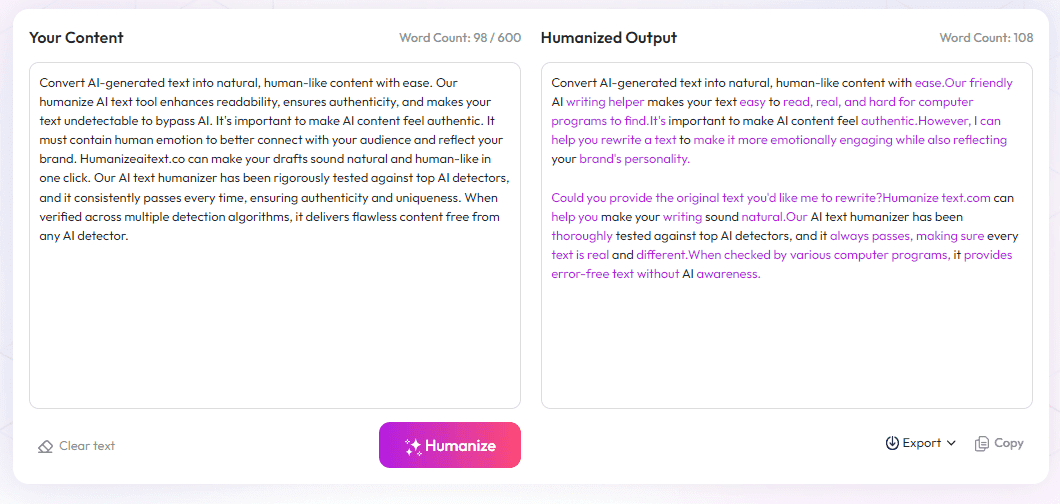Table of Contents
If you're a writer trying to connect with others and grow, Facebook groups might be just what you need. Sometimes it feels like writing is a lonely journey, but these groups can be an easy way to find support, advice, and motivation. Stick around, and I’ll show you how to find the best writer groups, what makes them helpful, and how to use them to boost your craft.
If you keep reading, you'll discover tips on choosing the right groups, engaging meaningfully, and making the most of what these communities have to offer. Whether you're a newbie or a seasoned author, there's something here for everyone. Ready to turn online connections into writing wins?
Key Takeaways
- Facebook groups connect writers for support, advice, and motivation, helping combat the loneliness of writing.
- Find groups suited to your genre or writing stage by searching keywords and checking activity levels and rules.
- Different types of groups focus on critique, industry tips, genre discussion, or self-publishing—pick what matches your needs.
- Popular groups like Indie Writers Unite and Calls for Submissions offer opportunities, feedback, and community success stories.
- Active groups with clear rules and features like critique threads and resource sharing help you learn and grow.
- Engage regularly by commenting, sharing milestones, and participating in challenges to build relationships and visibility.
- Sharing resources, asking specific questions, and being respectful improve your experience and expand your network.
- Explore niche and regional groups for targeted support and more personal connections outside the big communities.
- Choosing the right groups involves using keywords, checking recent activity, and understanding your goals to find best fits.

1. Find the Best Facebook Groups for Writers and Authors
Looking to connect with fellow writers and boost your craft? The first step is discovering which groups truly support your goals. Popular groups like Indie Writers Unite and Calls for Submissions have thousands of members eager to share opportunities, feedback, and advice. To find the best fit, search for groups aligned with your genre or writing stage. Use Facebook’s search bar, keywords like “writers,” “poetry,” or “self-publishing,” and filter by groups. Pay attention to group size, activity level, and rules—active groups with recent posts tend to provide more value. Joining multiple groups initially can help you gauge which ones foster the kind of support you need.
2. Types of Facebook Groups and How They Help Writers
Facebook hosts various types of writing groups, each serving a different purpose. Some focus on peer critique, like Beta Readers and Critique Partners, where writers exchange feedback to sharpen their stories. Others cater to indie authors, offering marketing tips and self-publishing advice, such as Self-Publishing Support Groups. There are also groups dedicated to genre-specific writing, like fantasy or romance, providing niche advice and camaraderie. Educational groups host AMA (Ask Me Anything) sessions or share resources—making them goldmines for learning and growth. Deciding what you need most—whether feedback, industry insights, or networking—helps pinpoint which groups will serve you best.
3. Top Facebook Groups for Indie Writers and Self-Published Authors
Among the crowd, some groups stand out for indie and self-published writers. The Indie Author Group with over 12,000 members offers insights into marketing and publishing strategies. Meanwhile, Indie Writers Unite boasts a community of 13,700+ members focused on developing undeveloped writing. For those hunting for publication calls, groups like Calls for Submissions gather publishers and contests, saving you hours of online searching. These communities often feature success stories, promotional swaps, and advice on navigating the self-publishing maze, making them essential stops for indie authors aiming to grow fast.
4. Key Features of Popular Writer Groups
Having a successful experience in writing groups hinges on understanding their features. Top groups typically boast active daily discussions, clear rules for posting, and organized topics. Many have pinned posts with guidelines, making it easier to navigate conversations. Supportive feedback and critique exchanges are common, often managed through structured critique threads. Besides, some groups offer expert Q&A sessions, webinars, or resource sharing—like templates or publishing tips. Engagement options vary from commenting on posts, participating in polls, or hosting live video discussions. Recognizing these features helps you choose groups that align with how you learn and interact best.

5. How to Use Facebook Groups Effectively as a Writer
Getting the most out of Facebook writing groups requires a little strategy and some good old-fashioned engagement.
Start by observing the group before jumping in—read the pinned posts, understand the rules, and see what kind of content gets the most reactions.
Introduce yourself in a friendly way, mentioning your writing interests or projects—people love a genuine hello.
Be specific when asking for feedback or advice—vague requests often lead to less helpful responses.
Participate regularly, not just when you need something—this builds your reputation and trust in the community.
Share your achievements or milestones, like finishing a chapter or sending out submissions, to encourage supportive interactions.
Use group resources like scheduled webinars or writing challenges to stay motivated and improve your craft.
Don’t be afraid to reach out privately to members who seem knowledgeable or like-minded—networking often leads to collaborations.
Be respectful of differing opinions and always thank members for their insights—good manners foster goodwill.
Lastly, keep an eye out for opportunities like writing contests, publishing calls, or local meetups announced within the groups.
6. Tips for Engaging and Getting Value from Writing Groups
Engagement isn’t just about posting—it's about meaningful participation that benefits both you and the community.
Comment thoughtfully on others’ posts—ask questions or offer suggestions to deepen the conversation.
Don’t oversell yourself; focus on learning and supporting others, which naturally encourages reciprocation.
Keep your posts clear and concise—whether sharing a snippet for critique or asking for advice—to avoid confusion.
Share resources you find useful, such as interesting articles, writing prompts, or tools—these add value to the group.
Set a schedule for checking into groups—daily or several times a week—so you stay connected and informed.
Join theme-specific threads or challenges to hone particular skills or genres.
Use polls or surveys to gather opinions and spark interaction—people like sharing their input.
Offer genuine praise to peers’ work—positive feedback encourages more participation and builds community.
If someone gives you advice you find helpful, let them know—acknowledgment goes a long way.
Remember, patience pays off; building relationships takes time, so stay consistent and friendly.
7. Other Facebook Groups Worth Considering for Writers
If you’re looking to expand beyond the most popular groups, there are plenty of niche communities worth exploring.
Groups like Indie Writers Unite specialize in indie publishing, offering tips on DIY marketing and distribution.
The Word Nerds Unite community is great for grammar questions, writing tips, and tackling writer's block.
For those interested in submitting poetry, fiction, or art, Calls for Submissions offers a steady stream of current opportunities.
If you're into genre-specific writing, such as sci-fi or romance, there are dedicated groups that discuss tropes, trends, and industry news.
Look into local or regional writing groups on Facebook—they can be less crowded and more supportive for face-to-face meetups.
Always check the group rules to ensure your posts align and avoid any accidental violations that might get you banned.
Joining a variety of groups ensures you see different perspectives and resources that can boost your writing journey.
8. How to Find and Join Facebook Groups That Match Your Writing Goals
Choosing the right Facebook group starts with a clear idea of what you want—be it critique, publishing tips, or networking.
Use specific keywords related to your genre, writing stage, or interests in Facebook’s search bar—try “romance writing,” “self-publishing tips,” or “poetry critique.”
Filter results by selecting “Groups” so you only see relevant communities.
Look at the group size: larger groups (over 10,000 members) often have more activity, but smaller ones (a few hundred members) might offer more personal support.
Scan recent posts to see if the group is active—frequent activity indicates members are engaged.
Read group rules before joining to ensure your participation aligns with expectations and guidelines.
Join multiple groups initially—you can always leave the ones that don’t fit your needs later.
Ask current members or moderators for recommendations if you're unsure which groups are best suited for your goals.
Remember, the key to benefiting from Facebook groups is consistency—regular participation helps you stay connected and grow as a writer.
FAQs
Look for groups with active members, clear goals, and positive engagement. Read group descriptions and join ones that match your writing interests and goals to gain valuable connections and resources.
Groups vary from critique circles, genre-specific communities, marketing support, to self-publishing groups, each offering specific advice, feedback, and networking opportunities tailored to different writing needs.
Participate regularly, engage in discussions, share your work for feedback, and offer support to others. Set clear goals for each group to maximize learning, networking, and growth.
Assess your writing focus, whether it's creative writing, publishing, or marketing. Find groups with active, respectful members that share your interests and provide valuable feedback.



